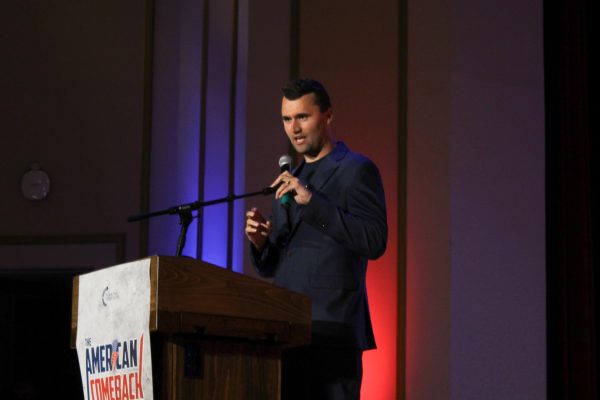VH What? ‘(White) Rapper Show’ hinders, not helps
February 1, 2007
Last Thursday, I was accidentally watching a show on VH1. Many people before me have posited that VH1 is ruining America, and now that I’ve accidentally watched it, there’s no denying my predecessors are right. “Ego Trip’s (White) Rapper Show,” the program I’d tuned into, features a group of barely talented white “wannabe” rappers competing against each other. The entertainment publication “Variety” states “contestants will live together in the South Bronx as a series of challenges test their music talent and ability to mesh with black culture.”
We all know – or are – the types of people who, when asked what their favorite music is, say something to the effect of “oh, I like everything. Except rap and country, that stuff is barely even music.” But they still dance to it at the bars. So there is something undeniably addictive about hip-hop, even in its most mainstream, iced-out, diamond-grilled, pimping-all-over-the-world format. “The (White) Rapper Show” really tries to capture what it is about hip-hop that is worth paying attention to – namely its history and its (original) message. But in my opinion it fails miserably.
Hip-hop does not have its roots in royalty. Its charm is precisely that it emerged in a context of centuries-old oppression and relegation to the lower classes, and it spoke entertainingly and truthfully about the perils of urban life. My favorite contemporary hip-hop still talks about these issues explicitly. Rhymefest’s new album, “Blue Collar,” is a Chicago-based album in part about being lower class on Chicago’s South Side. White underground MC Aesop Rock’s breakout album, “Labor Days,” was about the toil of 9-to-5 jobs in urban poverty. These albums are powerful in that they are socially aware; black or white, they look to hip-hop’s history for its contemporary relevance.
“The (White) Rapper Show” attempts to make this clear, but unfortunately, it becomes more obsessed with the popular images of “black culture” than with what hip-hop was and should be. The white semi-MCs ride around the Bronx in a prison bus touring the housing projects and playgrounds where early hip-hop first rooted itself. Like many reality TV shows, the contestants can win immunity, only on this show, what they win is a large iced-out rectangle with the words “Ghetto Pass” on an oversized gold chain. The goal, I suppose, is to integrate these people into “black culture,” and so riding around in a prison bus cherishing a “Ghetto Pass” is something they should get used to.
Sure, it’s funny to watch white people trying to figure out what black people are all about and trying to assimilate. But is that assimilation really about clothes or jewelry or being “ghetto?” I agree with the premise that there is in fact something to look up to, something beautiful to strive for and something that is very nebulous in hip-hop and black culture, both aesthetically and socially. But I don’t think it’s the prison buses or the bling.
Get The Daily Illini in your inbox!
I’m tragically Caucasian, as I told my editor when I proposed “The (White) Rapper Show” as my next column topic. I wouldn’t be able to “mesh with black culture” any better than any other privileged, white Chicagoan. But watching this show, I’m convinced that it should be the lyrics, the beats and the content that should matter. We should be critical of the fact that Ludacris has “hoes in every area code” even if we respect his talent. And for the record, in this regard, “The (White) Rapper Show” is embarrassing. After I heard the small white girl of an MC (“G-Child”) perform a practice verse that went something like “my flow be so heavy you’ll need a tampon,” I realized that “The (White) Rapper Show” was not about respect or reverence. Like today’s mainstream barely music pop-rap, it’s all about the ratings.





